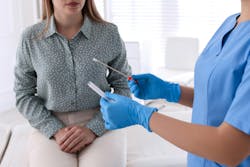QIAGEN launches new QIAcuity digital PCR assays for microbial applications, enhancing infectious disease research and surveillance
QIAGEN announced the launch of 35 new wet-lab tested digital PCR Microbial DNA Detection Assays for its digital PCR (dPCR) platform QIAcuity.
The new assays are available on QIAGEN’s comprehensive research platform GeneGlobe and are designed to target a wide range of pathogens responsible for tropical diseases, sexually transmitted infections (STIs) and urinary tract infections (UTIs), further solidifying QIAGEN's position as a leader in microbial detection and analysis.
The expansion introduces assays for critical pathogens including Dengue virus Serotype 1 to 4, Monkeypox clade I and II, Chikungunya as well as pathogens causing other tropical diseases such as Malaria and various STIs and UTIs. This addition brings QIAGEN's total microbial dPCR assay portfolio to over 680 targets, encompassing bacterial, fungal, parasitic and viral pathogens as well as genes associated with antibiotic resistance or virulence factors. These assays are part of a broader expansion plan of QIAGEN’s wet-lab-tested dPCR assay portfolio on GeneGlobe. Later in 2024, new dPCR LNA (locked nucleic acid) Mutation Assays and dPCR CNV (copy number variation) Probe assays will be made available, adding at least 100 dPCR assays in total throughout the year.
QIAGEN's QIAcuity digital PCR platform utilizes nanoplates to disperse a sample into thousands of tiny partitions and then reads the reaction in each one simultaneously to quantify even the faintest signals from DNA and RNA, enabling the sensitive and specific detection of even the smallest copy number changes in DNA and RNA, up to 5-plex. The system integrates partitioning, thermocycling, and imaging into a streamlined workflow, reducing processing times from six hours to just two. Available in one, four, and eight-plate versions, the QIAcuity platform is designed to meet the needs of a wide range of laboratory sizes and throughput requirements.

